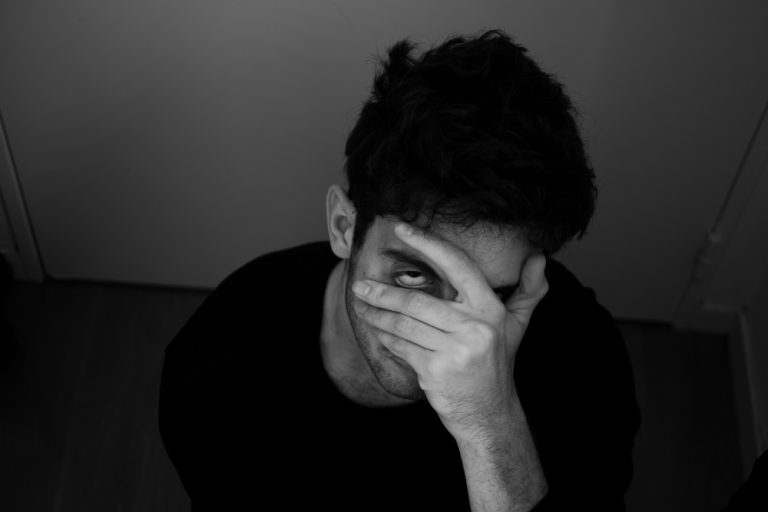ENTP is a personality type with a particularly interesting expression. With a reputation for being rebellious free-thinkers who challenge societal norms and trends, ENTPs are often outgoing, entertaining individuals with a playful sense of humor. However, certain circumstances can cause ENTPs to act differently.
An ENTP can have social anxiety if they feel they won’t receive mental stimulation from the people they are engaging with. This also occurs if an ENTP is not included in the social activity and is left outside the group to observe the goings-on. Once included, the social anxiety disappears.
ENTPs are generally extremely gregarious individuals with a good sense of humor. They require significant mental stimulation to keep them entertained. They enjoy picking apart common societal concepts to understand them for themselves. If the people they are spending time with have little curiosity or willingness to discuss or debate topics, ENTPs will quickly become uncomfortable.
Can ENTPs Have Social Anxiety?
ENTPs can have social anxiety just like anybody else. Because ENTPs are generally social, outgoing individuals who thrive on social interaction, an ENTP with social anxiety will be particularly uncomfortable with these sensations. They will feel very frustrated with their social anxiety and will attempt everything to regain a level of comfort.
An ENTP has an extremely active brain, and their thought patterns are continuously jumping all over the place. ENTPs are prone to overthink, and they can quickly become trapped in a cycle of their own thoughts.
Particularly when an ENTP is not an active participant in a social situation, they can quickly start analyzing the actions of the people that surround them. They will be aware of every response and behavior to try and understand if these people like them.
What Makes An ENTP Anxious?
An ENTP will most often become anxious when they find themselves surrounded by people they have no interest in. This will mostly refer to shallow individuals with whom conversations cannot extend further than small talk.
In this sort of situation, an ENTP will become uninterested and bored and either attempt to get out of the social situation or attempt to shake things up to make the interaction less draining to endure.
ENTPs are inquisitive, outgoing, and often charming individuals. If they find themselves in a situation where they are somehow excluded from the goings-on of the social circle, they will quickly become anxious. Being inactive in social activity can cause great distress to an ENTP. Still, once they are brought in to take part, their anxiety will quickly dissipate.
Once they have been included and feel less anxious, the ENTP will quickly begin bringing every conversational topic into question and will, in most cases, take an oppositional stance to create a debate.
Are ENTPs Naturally Shy?
It’s important to understand the difference between shyness and social anxiety. Shyness is generally considered a situation-specific occurrence that disappears under the right circumstances. It is usually short-lived and doesn’t significantly affect the individual’s functioning or daily life.
On the other hand, social anxiety is a relatively persistent occurrence that can significantly affect a person’s functioning in a social setting. It will often affect them daily, and it can cause physical symptoms that cause major discomfort for the ENTP in their day-to-day functioning.
It’s important here to distinguish between an anxious ENTP and an INTP. An anxious ENTP most often shows signs of social anxiety only under certain circumstances where they feel uncomfortable in a social situation. This is most often situational and will generally stem from the ENTP not receiving sufficient mental stimulation from the people in a social setting.
An anxious ENTP will be temporarily anxious while in an uncomfortable social situation but will thrive once they have found people with whom they can relate. On the other hand, an INTP will tend to keep more to themselves and is less likely to engage passionately in social settings.
Can ENTPs Be Awkward?
While ENTPs are generally described as entertaining individuals with a playful sense of humor, there is a tendency for them to appear awkward at times for various reasons. Firstly, ENTPs’ propensity to prefer deep, intellectual conversations can prevent them from being able to engage in small talk.
ENTPs generally despise small talk and struggle to participate in conversations they see as pointless, boring, or generally lacking in mental stimulation. As a result, an ENTP forced into a shallow social interaction may find they are unsure of how to act and appear awkward as they struggle to navigate the interaction through sarcastic humor.
ENTPs often use humor to mask their own anxieties and insecurities. This humor can sometimes be inappropriate, coming across as awkward. Suppose an ENTP finds themselves in an interaction lacking stimulation. In that case, they may make some controversial statement to strike a debate to spark some interest for themselves in the interaction.
If an ENTP finds somebody intriguing, they can pursue interactions with this person with a certain ferocity. The intensity with which they interact with this person – and the intensity with which they may ask questions– can come across as somewhat awkward to somebody who doesn’t know this ENTP.
While their apparent intensity and constant questioning is most often their excited attempt to understand somebody through genuine interest in the person, it can appear somewhat inappropriate, awkward, and intense.
ENTPs are generally comfortable being themselves and seldom conform to societal norms where they feel no desire. This general disregard for the idea of following the crowd or ascribing to trends without question may cause the ENTP to appear awkward.
ENTPs often enjoy challenging societal norms and act decidedly strangely on purpose to challenge what is expected of them by other people. This inherent rebelliousness and tendency to respond in ways opposite to what others expect can be seen as weird or awkward, especially when challenging authority.
Conclusion
Just as with most people, when placed in a less-than-ideal social situation, ENTPs can have social anxiety. This is most common when an ENTP finds themselves in a social setting where they feel they cannot be fully themselves and have to mask a part of their personality. Having to fit in is a desire not often felt by ENTPs, so having to do so will cause them great distress.






